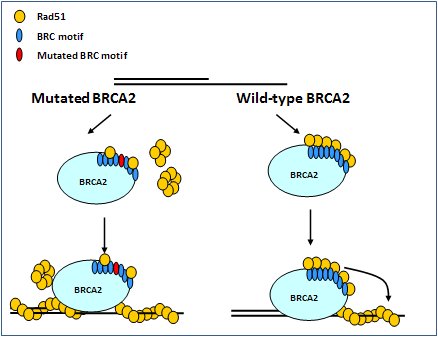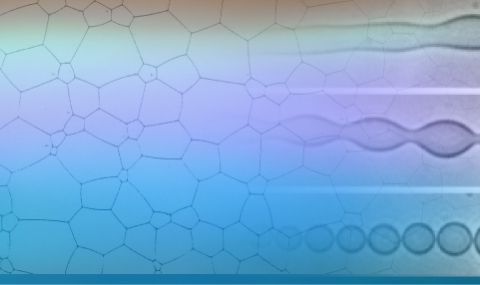In eukaryotes, most homologous recombination events are carried out by the RecA-homolog Rad51 protein, which is functional after forming a filament on a DNA substrate. The activity of Rad51 is modulated by the BRCA2 protein, which, by virtue of its direct interaction with single-stranded DNA (ssDNA), has been suggested to play a role in recruiting Rad51 to sites of DNA damage. Impairment of BRCA2 function has been associated with breat, ovarian, and other cancers.
BRCA2 interacts with monomeric Rad51 primarily via conserved BRC domains, and coordinates the formation of Rad51 filaments at double-stranded DNA (dsDNA) breaks. A number of cancer-associated mutations in BRC4 and BRC2 domains have been reported. To elucidate their effects on homologous recombination, we studied Rad51 filament formation on single-stranded DNA and dsDNA substrates and Rad51-catalyzed strand exchange, in the presence of wildtype and mutated peptides of either BRC4 or BRC2. While the wild-type BRC2 and BRC4 peptides inhibited filament formation and, thus, strand exchange, the mutated forms sigificantly decreased these inhibitory effects.

We suggest that mutations at sites crucial for the association between Rad51 and BRC domains impair the ability of BRCA2 to recruit Rad51 to dsDNA breaks, hampering recombinational repair.
“Cancer-associated mutations in BRC domains of BRCA2 affect homologous recombination induced by Rad51″
A. Tal, R. Arbel-Goren and J. Stavans, Jour. Mol. Biol. 393, 1007 (2009).


